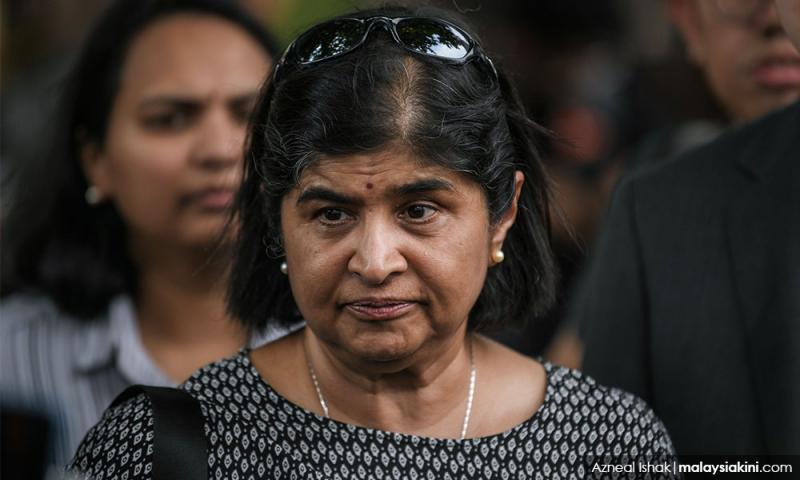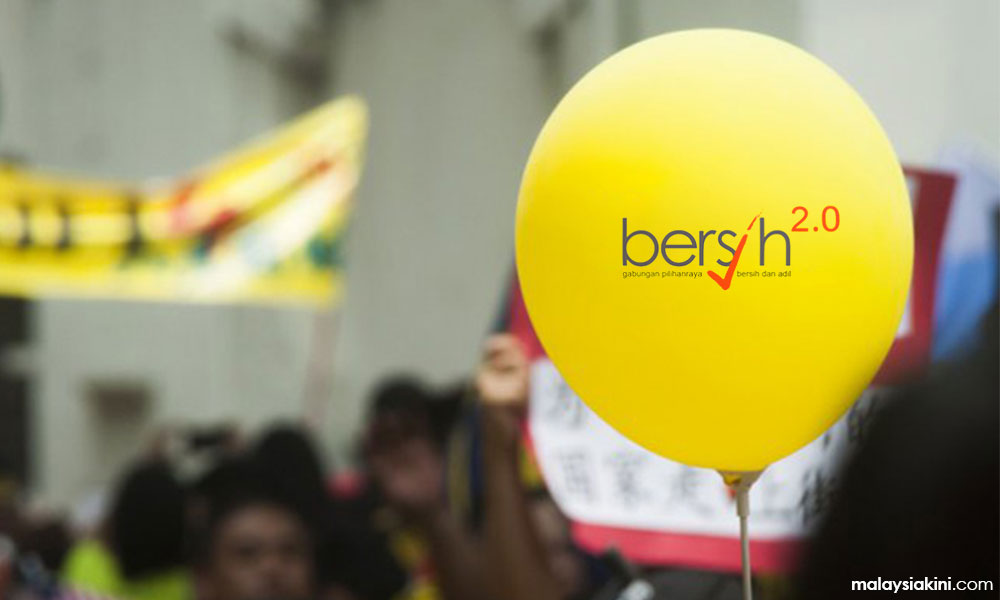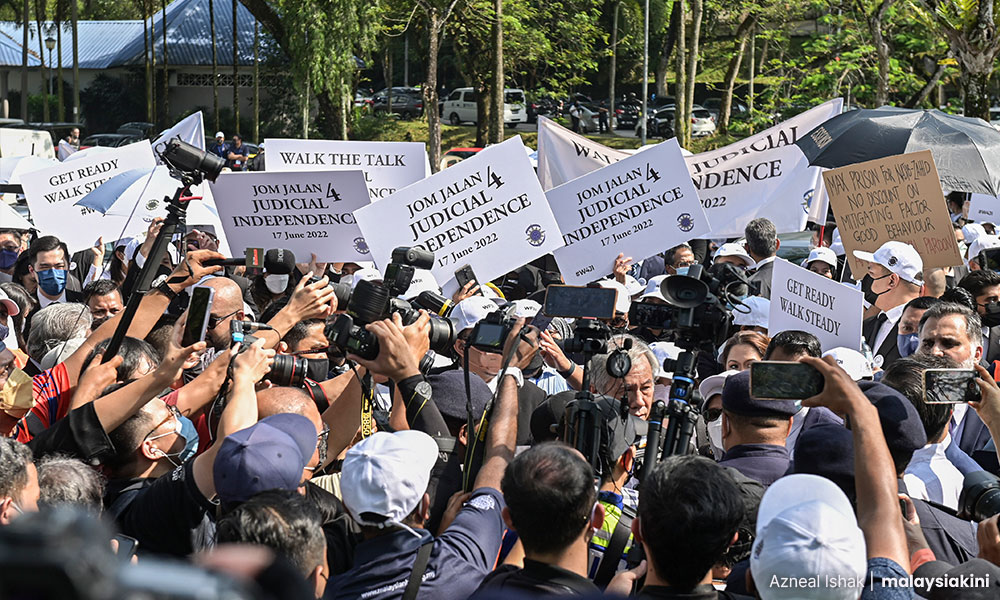
May 13 bloodletting, Bersih different kettle of fish - Ambiga
Equating a racial clash which claimed scores of lives with a gathering pressing for free and fair elections is egregious, according to those who disagree with Johor ruler Sultan Ibrahim Sultan Iskandar.
For Ambiga Sreenevasan, the distinction between the two is obvious or in her own words, “a different kettle of fish altogether”.
“Rioting is a criminal offence. A peaceful assembly is not.
“Malaysians have matured and well appreciate that their rights extend only to assemblies, protests and gatherings that are peaceful,” she told Malaysiakini.
Ambiga was the former chairperson of the electoral reform group Bersih, whose mammoth street rallies rattled the political elites and led to the implementation of several measures such as the use of indelible ink during the voting process.
The initial rallies, however, were marred by sporadic incidents of violence which the organisers claimed resulted from the police’s unwarranted actions.

Last week, Sultan Ibrahim, in denouncing a DAP leader’s call for street protests over price hikes, recalled May 13, 1969, racial clashes and Bersih rallies.
Urging the people to learn from the past, the monarch argued that these “riots” achieved nothing other than chaos and destruction.
Right to peaceful assembly
Meanwhile, Ambiga noted that the right to peaceful assembly is recognised internationally and protected in Malaysia under the Federal Constitution as a fundamental right.
“So important is this right that the United Nations has established the mandate of a special rapporteur on the rights of peaceful assembly. Malaysia has passed the Peaceful Assembly Act in 2012 that recognises this right.
“Malaysia sits on the UN Human Rights Council now for the third time and must understand and value this right or we will lose our moral authority to remain on the Human Rights Council,” she added.
Eventually, Ambiga, who is also the former Malaysian Bar president, said the police realised this and facilitated the subsequent Bersih protests.

However, she criticised the police for thwarting the planned march by lawyers to safeguard the independence of the judiciary following MACC’s investigation into judge Mohd Nazlan Ghazali, who convicted former premier Najib Abdul Razak in the SRC International case.
“Shame on the police because they are well able to facilitate such assemblies effectively and instead chose to encircle the lawyers refusing to allow us to walk. What a disgrace for a country that is a member of the Human Rights Council,” she added.
Between elections, Ambiga said, people are only able to communicate their grievances to the government through the exercise of their freedom of speech and/or assembly.
“A curtailing or unreasonably restricting such a right breaches all human rights norms and merely increases the anger and frustration of the people,” she added.
New Suhakam commissioners
On a separate matter, Ambiga agreed with former Suhakam commissioner Mah Weng Kwai who urged the appointment of new commissioners to be expedited.
“We have had some excellent commissioners in the past who have issued solid rulings and it is hoped that the new commissioners will live up to the standards set by previous commissioners.
“Of course, it is anticipated that the new appointees will have the basic knowledge of human rights as well as the relevant international instruments.
“Ultimately they must have respect for human rights and have the hearts and minds for the job,” she added.
No comments:
Post a Comment